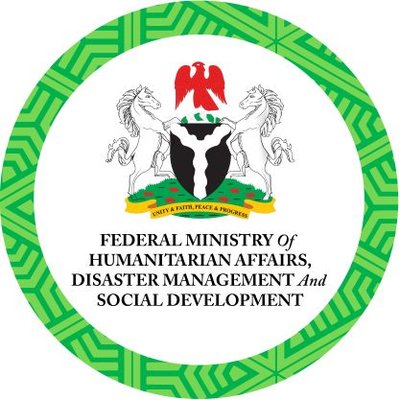The Federal Ministry of Humanitarian Affairs, Disaster Management and Social Development is to institutionalize the Zero Hunger Round Table.
The Minister, Sadiya Umar Farouq made this known at the National Food Security Council Meeting held on Thursday September 10 at the Presidential Villa.
In her presentation, Sadiya stated that the initiative is being institutionalised as part of the Ministry’s response to the challenge of hunger, aggravated by the lockdown with focus on eliminating hunger, achieving food security, improving nutrition and promoting sustainable agriculture by 2030 with relevant stakeholders.
“This Ministry provides shock responsive social safety nets through immediate food relief and long term sustainability through the Zero Hunger.
“As part of the mandate of the Ministry to ensure strategic disaster mitigation, preparedness and response, the National Social Investment Programmes (NSIPs) complemented the mandate of the Ministry as delivery mechanisms to provide social interventions including food relief to targeted poor and vulnerable groups across the country,” the Minister said.
Umar Farouq recalled that the modified National Home Grown School Feeding Programme and Take Home Rations (THRs) were provided for 127,589 vulnerable households during the lockdown with children in primaries 1 to 3 in public schools in the FCT, Lagos and Ogun states while 164 trucks of food items were also distributed to 36 states and the F.C.T. as palliatives through donations from the Nigerian Custom Service.
“As of today, over 41,000 metric tons of grains from the Strategic Grains Reserves expected to reach over 5 million households have been handed over to 19 State governments and the FCT. Distribution is ongoing through NEMA based on the presidential directive”.
The Minister stated that the Zero Hunger Roundtable is working in agreement with the Federal Ministry of Agriculture and Rural Development and some top private sector executives like Tony Elumelu, Tonye Cole as well as Sahel Consulting, IFPRI, IITA, NESG, FAO, IMMAP, ECOWAS and others.
She enumerated data of Poor and Vulnerable Households, strategic partnerships, job creation and impacting the agricultural sector as well as strengthening the food value chain by connecting farmers to markets, increased local production of nutritious food,
strengthening strategic food reserves with the Ministry of Agriculture and Rural Development and other critical stakeholders as long -term sustainability strategies to achieving Zero Hunger in Nigeria.
The Zero Hunger Roundtable was convened by the Minister on May 5, 2020 in conjunction with the World Food Programme to bridge the gaps in resources and pave new collaborations for lasting and sustainable change and progress.
NNEKA IKEM ANIBEZE
SA MEDIA
11-09-2020






